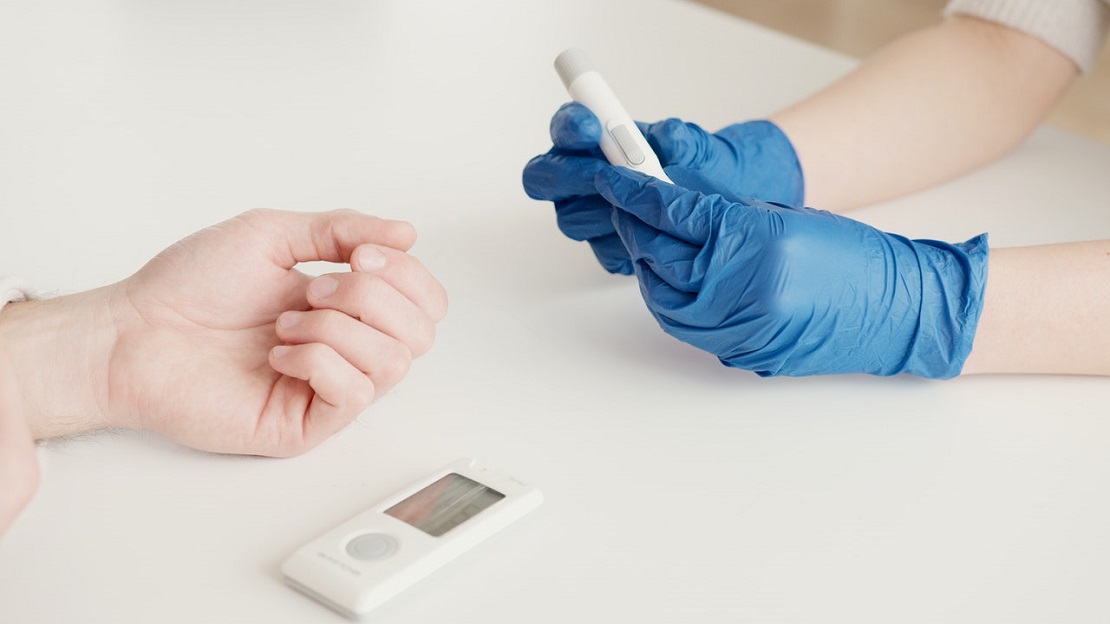Diabetes is characterized as chronically elevated blood glucose (blood sugar) which your body needs for energy. Diabetes is more likely to develop in families with known diabetes history. Other factors such as obesity and poor lifestyle might also contribute to the development of this disease.

Type 1 diabetes
Type 1 diabetes is a condition where the pancreas is not providing sufficient amount of insulin to regulate blood sugar (blood glucose) levels. Type 1 diabetes develops in childhood / early adulthood. Type 1 diabetes is much rarer that type 2. Only about 10% of patients develop type 1 diabetes.
Type 2 diabetes
Type 2 diabetes is the condition in which target tissues are not responding to insulin (type II diabetes). Type 2 diabetes is more likely to develop after the age of 40. Diabetes is more likely to develop in families with known history of diabetes.
90% of patients develop type 2 diabetes.
Gestational diabetes
Gestational diabetes can only develop in women. It affects pregnant women only. It occurs when pregnant women without a previous diagnosis of diabetes develop a high blood sugar (blood glucose) level. It may precede development of type 2 diabetes.
What causes diabetes?
What causes the disease is not yet known. Perhaps in hereditary predisposed persons a viral infection can trigger it. Some studies also suggest that obesity can cause the development of diabetes, although no reliable correlations were found.
Diabetes can develop if taking corticosteroids or because of certain adrenal diseases in which excessive corticosteroid hormones that oppose the functioning of insulin are formed (such as Cushing’s disease).
Type 1 diabetes develops before the age of 40 and can affect children as well. It might be hereditary predisposed.
Type 2 diabetes usually develops after the age of 40 year. It develops slowly and silently, and it often takes several years before symptoms appear.
A special form of diabetes is also diabetes during pregnancy or gestational diabetes. The disease usually disappears after child is born, but these women have higher risk of developing type II diabetes when older.
How to treat diabetes / is it curable?
Unfortunately, diabetes (type 1 and type 2) is not reversible. There is no known cure for diabetes type 1 & 2.
Gestational diabetes develops during pregnancy and it is reversed after birth. In some cases gestational diabetes might develop in diabetes after birth.
With exercise and proper diet you can control your diabetes and live a normal life. Read more about diet for people with diabetes.
Blood sugar values
It is important to measure your blood sugar levels regularly. If unsure about expected blood sugar values, take a look at this blood sugar levels chart.
If prone to diabetes, a measurement of blood glucose levels is advised every couple of months. Consult with your personal doctor.









































![Facts About Vision Impairment Worldwide [Infographic ] glasses](https://healthiack.com/wp-content/uploads/2014/10/glasses-100x70.jpg)
[…] such as Chronic Obstructive Pulmonary Disease, Chronic Heart Failure, high blood pressure, diabetes, epilepsy, […]
[…] Since around 70% of the total adult American population suffers from overweight or obesity, it has become the country’s number one priority in the health care system to teach people how to efficiently lose weight and narrow down their chances of developing heart disease problems or diabetes. […]
[…] It is crucial to know that ordinary socks may have a negative effect on people with diabetes. […]
[…] Diabetes, either type 1 or type 2, is a serious medical condition which requires certain lifestyle changes in order to maintain the quality of life a patient had before diagnosis. […]
The article is very through and helped me understand glucose levels. I am on the right track with exercise and more vegetables and fruits. I have not been diagnosed with diabetes but I like to have accurate information to share when the need arises.
Thank you
Type 1 diabetes us caused by an autoimmune reaction to a virus – what virus is not known yet. It can’t be avoided at the moment.
Type 2 diabetes is caused by insulin resistance leading to the pancreas being ‘knackered’ and eventually packing in. This can be inherited. Thin people can develop type 2.
Oh and my cousin was 46 when diagnosed with type 1. I was 20.